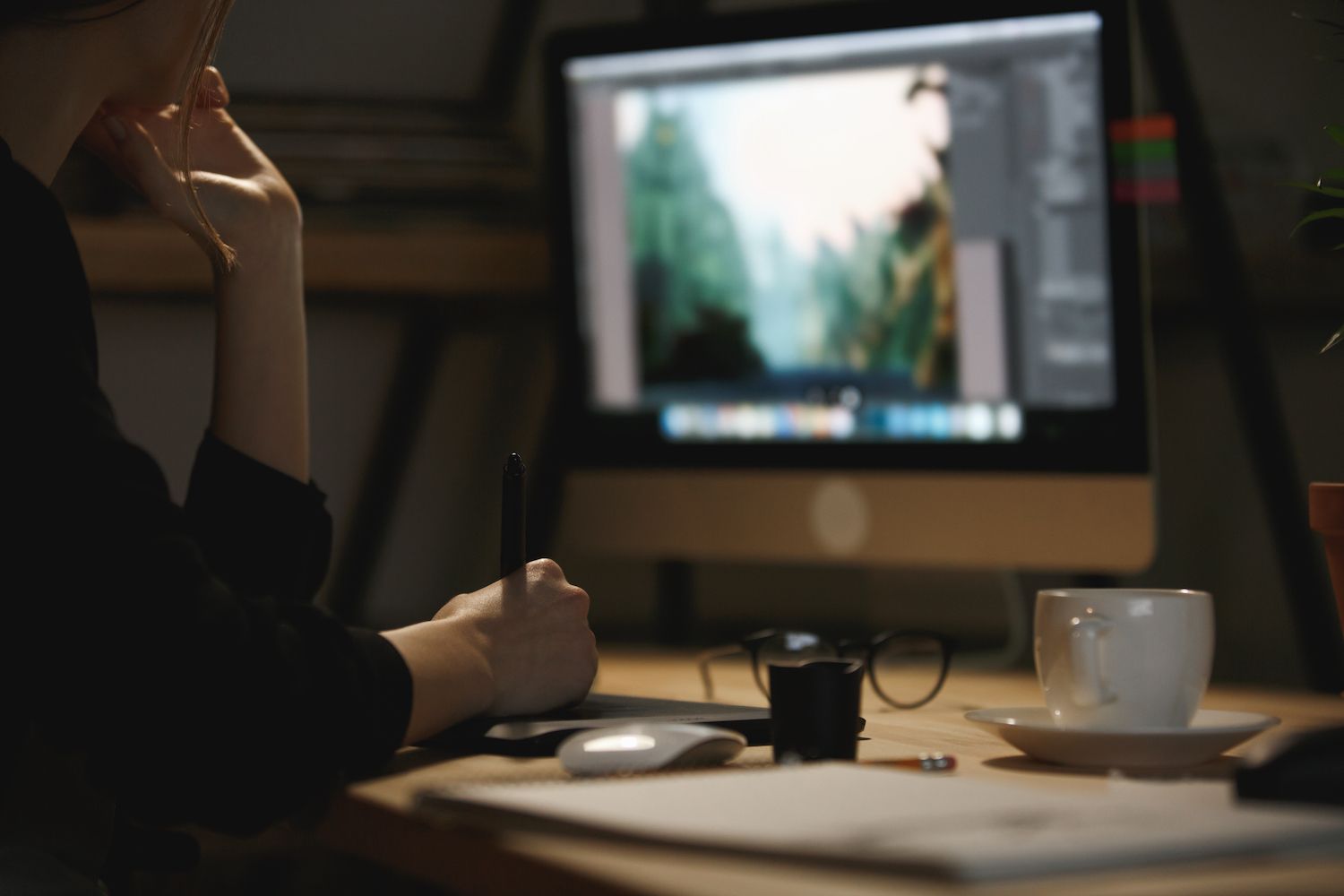Staff Pick: "The Tunnel" by Arash Ashtiani
In this Week's Staff Pick Premiere, "The Tunnel," BAFTA-nominated filmmaker Arash Ashtiani tells the heartbreaking tale of three refugees battling for their lives along the Euro Tunnel connecting France to the UK.
Inspired by true accounts The film remains unaffected in its portrayal of the bravery and risk not deservedly imposed on the millions of people seeking basic human rights. "The Tunnel" takes us to the third and tense part of the larger narrative Ashtiani is developing alongside his co-writer Daniel Metz. Yet, the short stands on its own as a compelling and chilling story of the lengths three people will go to for the sake of living an improved life.
Ashtiani describes the tales the film's director heard during his preparation for the movie by describing them as "rollercoasters" of physical and emotional tension. The film captures this emotion is beautifully recorded through the enveloping construction design of the tunnel itself and the meticulous editing which fluctuates between the camaraderie that is formed between the men and the increasing fear that builds as the train approaches in the tunnel, and the peaceful eerie silence at the train station.
Prior to the movie's announcement, we reached out to Ashtiani for more information about his film and process. Find out more in-depth review of the process he used to pull from such a captivating and dramatic film.

On the inspiration for the movie:
"'The Tunnel' was the result of an actual story. My community of friends located in London comprises people who came to the UK through a variety of ways as well as some in tragic and harrowing ways over the past two decades. One of the topics that we speak about is how we arrived to the UK and some of them came via Calais to Kent using different methods of transport.
As I heard their stories, I felt obliged to share them. Their stories are like a rollercoaster of emotions and events for me. The obstacles they face, the dreams they have their hearts set on, the determination to get moving, and also the energy. It's got hardship, physical and mental exhaustion and moments when their character is put to the test. The film is filled with laughter and hope at the lowest point and these are the things that inspired me to make this documentary. ."
In the process of writing:
"'The Tunnel' is the last scene in the film script Daniel Metz and I wrote together. The two previous acts are based on these characters in Calais getting ready to manage the Tunnel. We finished the first draft of the feature script in 2015. Since then we made short films and currently are writing the new version of our feature script.
We didn't want to make a social film about refugees However when we were researching and writing of the script we spoke with individuals who lived living in Calais before settling in the UK. We read memoirs by refugees who have written their own stories. We also watched documentaries, plays and films about the camps in Calais as well as the lives of people who are living in the camps."

On the production design and cinematography
"From the beginning of the writing process there was a question about where to take the tunnel. We knew a little bit about the actual EuroTunnel but even though we wanted to preserve the real characteristic of the tunnel, we did not want to limit ourselves to these details. After months of searching for the perfect location and scouting, we made the conclusion that it was better to shoot in a studio. It was a challenge to design extensions for each side of the set.
Mike McLouglin, our production designer, has done an incredible job in re-creating an area of the tunnel in the studio. Nick Morris, our DP did a fantastic job in how he shot the scene. One of the challenges was to design extensions for every side of the stage to view the tunnel as an infinite blank space. Mike expanded it using the idea of using an end mirror so when the camera looks at the other end, you can see the endless tunnel. Mike constructed an exact scale model of the tunnel. We used an Hornby Eurostar model train with tiny lenses attached to it to shoot the scenes of the train moving through the tunnel. The concept was a bit bizarre at first, but after Static VFX then brought their expertise and magic into the post-production process, it began to make sense and look amazing.
We decided to get closer and closer to our main character as time passed by. Every time we go from the station to the tunnel, it brings us closer to the character in front of us and the tunnel helps in creating an experience that is more personal to the tunnel and the fearless attempts to make it run ."

In the process of editing the film:
"The editing process of this film was among the most fascinating aspects of the whole process. The most significant tasks for me was the ways we could create tension and suspense. My co-writer, Daniel Metz and I had thought of it when writing the script but I was able understand it properly in the editing process and must thank the editor of the film Stuart Gazzard for this.
Through the editing process I found out what type of information we need to add bit-by-bit in order to build suspense. The film was shot by Gare de Nord train station scenes as well as the model train once the final cut. Editing shaped the film by defining the character of the film, thus creating suspense and also the speed of the film."
The challenge in making the film:
"I believe that, generally the process of making films can be challenging. One of the major problems filmmakers face is finding money to make their films. It took me two years to identify producers. Anna Seifert-Speck had been leading a program at Berlinale Talent Campus where she heard me pitch the project and introduced me to Anna Griffin. Together we raised money from The BFI Network and Lush Film Fund.
The way of shooting and action scenes is different than emotional ones. It was evident throughout the shooting process and the differences came to light for me. In looking back over my shooting experience, I realized that I spent the equal amount of time in between scenes of action and emotional parts which could have been handled more effectively... I should have brought the energy and urgency of the escape scene and sequences into them by shooting them in the fastest and most intense time-frame and spending more time capturing the moment between the actors."

On hopes for the film:
"I believe that what is continuing to increase is the rise of Nationalism and populist political leaders in British and European governments. This is because the governments use the anti refugees and xenophobe attitudes to gain political benefits.
With the introduction of the new British law that was adopted just a few several months ago, teenage male refugees, just like those in 'The Tunnel' will be sent to Rwanda in the near future to wait for their cases to be processed. It is my hope that viewers realize the people who go through the mud to reach the beloved refuge of the viewers are real people with dreams for a better life as well as a more peaceful and fulfilling life. They flee their homes and countries either from war, religious fanaticism, or financial difficulties. They better get humane treatment so that they can be accepted into society, instead of being labeled as criminals.
I would like to believe that after viewing a handful of strangers in a strange setting, going through a challenge because of basic human desires, the audience will recognize the familiarity of these people and view them as individual humans."
On advice for filmmakers who are aspiring:
"Filmmaking is not a one-man task and requires collaboration. Look for people who inspire you to do what you're trying to accomplish. The trust they have in your taste is key for a creative partnership. It is based on knowing the people you are working with. Spend time with them in the amount you think you have to, and then listen to what they say and ask for them to talk about their five top movi,es and determine if you connect to them in any way or not. No matter if they're in the same vicinity as the movie you'd like to create or not however it will help you understand whether your worlds overlap and if you share similar visions to make your film.
Don't let the technical side of your story take over your imagination and compromise your narrative by focusing on the technical aspects.
Be respectful to your coworkers and do not Be demanding!"
The next step:
"Developing and directing 'The Tunnel movie feature is my next endeavor. The story of the characters up to the moment they walk into the tunnel. The co-writer of the script, Daniel Metz, and I are developing the feature length script using the knowledge we gained from making the short.
I've recently finished an feature-length documentary on the Iranian exiled poet Esmaeel Khoei, who died in London in 2021. It was largely based on VHS tapes that he had accumulated during his early period in exile. It'll be released in October ."
